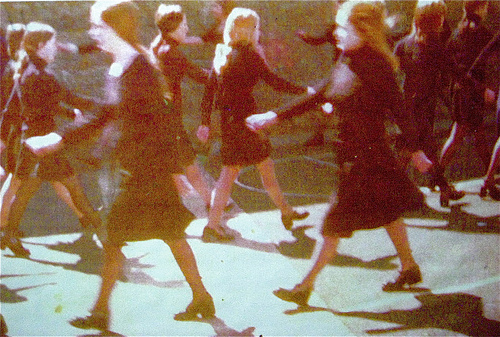Apr 27, 2013 Comments Off on Margaret Thatcher was told ‘some’ IRA leaders wanted violence to stop in 1981
Margaret Thatcher was told ‘some’ IRA leaders wanted violence to stop in 1981
Margaret Thatcher was told ‘some’ IRA leaders wanted violence to stop in 1981
Thatcher papers raise questions about why it took until 1994 for IRA to declare its first major ceasefire
Gerry Moriarty
Irish Times
Sat, Apr 27, 2013
Official secret memos contained in the Thatcher Foundation papers on the 1981 hunger strikes point to a conviction in senior British government circles up to and including the British prime minister Margaret Thatcher that “some” in the IRA wanted its campaign to stop.
The chief reference is in the minute that the then Northern secretary Humphrey Atkins sent to Mrs Thatcher on July 6th when an intermediary, businessman Brendan Duddy from Derry, was exchanging messages between “Provisional” leaders and the British government.
According to the papers, this resulted in an offer from the British government to settle the hunger strikes at a stage in which just four people had died.
The status of this offer has led to a long-running dispute within republicanism.
Richard O’Rawe, an IRA prisoner during the strikes, has claimed that the prisoners’ leadership accepted a deal at that time to end the strike but that this was overruled by the IRA army council.
This has been consistently denied by senior Sinn Féin figures such as Gerry Adams and the then Sinn Féin publicity chief Danny Morrison.
Mr Atkins in a minute to Mrs Thatcher said there were “some” in the IRA leadership who wished “to consider an end of the current terrorist campaign”.The papers also disclose that the British government held this view for some time.
There is also a memo from the then British cabinet secretary Sir Robert Armstrong to another senior official, the “gist” of which was conveyed to Mrs Thatcher, which also adverts to an IRA desire to end its campaign.
It was written on April 13th 1981 just four days after hunger striker Bobby Sands was elected as MP for Fermanagh-South Tyrone. He died on May 5th.
“There is reason to believe that the PIRA have been thinking seriously about an end to the campaign of violence, but feel they need a success, an avenue to pursue their aims politically, and something more on the prison regime,” Sir Robert wrote.
“The Fermanagh by-election has given them the success, and a political opening, which there is reason to think they hope to follow up in the local government elections,” he added.
While the hunger strikes created the conditions for Sinn Fein to expand politically it wasn’t until 13 years later that the IRA called its first ceasefire in August 1994.
This new information is likely to lead to speculation about how the British government had this belief and whether it was gained through MI5, MI6, agents, informers or some other form of communication or contact. It also raises question about why the IRA did not end its violent campaign earlier.
The British government from these official papers carried the conviction that there were influential IRA leaders who were considering a ceasefire. This was at a time when republicans such as Daithi O Conaill and Ruairi O Bradaigh, viewed as being predominantly militarist, appeared to be in the ascendant within the broad movement although they were under pressure from Northern republicans led by Mr Adams, Mr Morrison and the Sinn Fein Deputy First Minister Martin McGuinness.
It wasn’t until two years later that the Northern leadership of Gerry Adams and Martin McGuinness fully took over the provisional republican movement. This month’s Sinn Fein ardfheis marked Mr Adams 30th year as Sinn Fein president.
These papers also reinforce the point that while the British prime minister Margaret Thatcher was insisting there could be no dealings with Provisional republicans during the hunger strikes that she was in fact allowing official contact to take place through a mediator – and was prepared up to a point to allow a settlement.
SOURCED FROM THE IRISH TIMES
APRIL 13 1981
There is reason to believe that the PIRA have been thinking seriously about an end to the campaign of violence, but feel they need a success, an avenue to pursue their aims politically, and something more on the prison regime.
The Fermanagh by-election has given them the success, and a political opening, which there is reason to think they hope to follow up in the local government elections
DOWNLOAD PDF: APRIL POLITICAL REPORT

 It has withstood the blows of a million years, and will do so to the end.
It has withstood the blows of a million years, and will do so to the end.